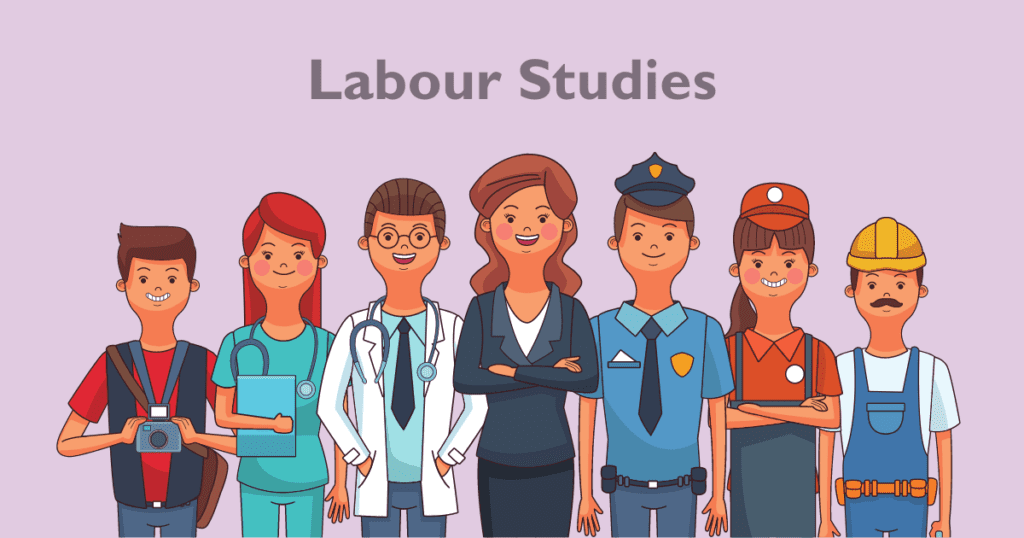Labour Studies
Labour studies study work, workers, and the businesses they work for. It encompasses a variety of topics, including sociology, economics, history, law, political science, and psychology. It focuses on employment, working conditions, workers’ rights, labor movements, and globalization. A career in labour studies allows individuals to analyze and address the complex dynamics of the workforce. It advocates fair labour practices and shaping policies that promote social justice in the workplace.
What do people who study labour studies do?
People who study labour studies can work in a variety of professions, including:
1. Labour Unions:
Labour unions employ many graduates of labour studies programs who help with contract negotiations, worker organization, and labor rights advocacy.
2. Government organizations:
Organizations like the Department of Labour or the Occupational Safety and Health Administration (OSHA) may employ graduates of labour studies programs to uphold labor laws and regulations.
3. Non-profits:
Non-profit companies that prioritize workers’ rights, advocacy, and research may hire graduates in labour studies.
4. Human resources:
Graduates of labour studies work in the human resources departments of businesses, where they contribute to creating policies and procedures that support justice and equity at work.
5. Academic career:
Graduates of labour studies may decide to work as researchers and instructors of courses on labor-related topics in academia.
Degrees to pursue in Labour Studies:
1. Master’s Degree:
A Master of Arts (MA) or Master of Science (MS) degree in labor studies or a related field can provide specialized knowledge and skills in labor studies. It takes 2 years to complete an MA in Labor Studies.
2. The Diploma in Labor Studies
It is designed for individuals interested in learning about labor issues and pursuing careers in various fields, including labor unions, government agencies, non-profit organizations, and human resources. It typically takes 2 years to complete a diploma.
3. Certificate Programs:
Many universities and colleges offer certificate programs in labor studies. These programs offer specialized knowledge in labor studies to enhance career prospects for students not pursuing a degree.
Jobs in Labour Studies:
Here are some career options in labour studies:
1. Labor organizer:
is in charge of encouraging and enlisting workers to join unions or other worker advocacy organizations.
2. Human Resources Manager:
A human resources manager is responsible for managing employee relations, hiring, training, and development, as well as pay and benefits.
3. Labor relations specialist:
mediates disputes between employers and employees, negotiates collective bargaining agreements, and liaisons between the two parties.
4. Consultant for Diversity in the Workplace:
A diversity consultant assists organizations in fostering inclusive and diverse workplaces.
5. Specialists in occupational health and safety
Thses are in charge of spotting and eliminating risks in the workplace.
6. Public policy analyst:
A public policy analyst researches and evaluates government labor policies.
7. Employment lawyer:
an attorney who focuses on labor-related legal issues like discrimination, workplace safety, and collective bargaining.
8. Labor economist:
studies how labor affects the economy, as well as employment, wage, and productivity trends.
Is a Labour Studies degree worth it?
A labor studies degree is worth it as it provides a thorough understanding of the working world. It equips individuals with the tools and skills necessary for labor organizing, human resources, and public policy careers. Despite being competitive, the degree offers a unique and fulfilling career path for those motivated to change the workplace.



